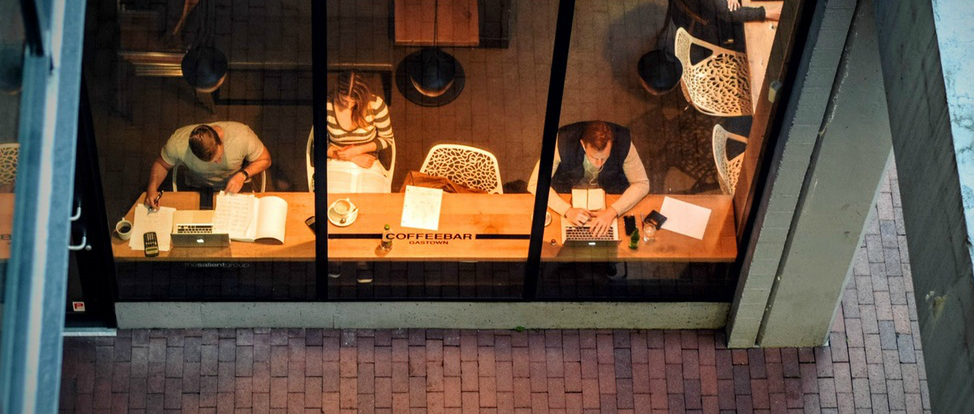
Many of us are confined to our homes right now, whether for most of the time, or some of it.
Life is different from a month ago. We don’t have the same time, places, people and resources available to us.
Our worlds have, in many ways, contracted.
For most of us (though if you have kids, I appreciate things might be a little different) time is different. Hours can pass in front of Netflix, as an entire series whooshes past before you’ve noticed half the day has gone. It could be 2am when you realise you fell down a YouTube rabbit hole and have spent three hours watching videos of bunnies eating fruit.
We need to take care of ourselves a little differently than ‘normal’.
That looks different for us all, but here are five ways you could make it work for you.
1. Reach Out in New Ways
Extroverts are suffering. My partner, who is highly extroverted and needs social time and connection almost as much as breathing, is struggling. Text doesn’t cut it. You need a richer form of interaction, with nonverbal cues.
Starter Action: Make time for video or voice with a friend or family member (where you’re not multitasking five other things), to fill up your social bar.
Next Level Action: Create an online event for a group of friends and family members such as a themed chat, or a board game, or a a skill share where you take it in turns to offer a mini workshop on something you love.
2. Switch Off
Suddenly, the 24 hour news cycle actually has 24 hour news. Another internet spiral to vanish down – this one often full of negativity and fear. Whilst I am definitely not advocating rose-tinted glasses given what’s happening, I also think there’s only so much of this kind of information that is helpful. I use two sources – one that gives me a summary of the global situation and one that points me towards any changes that might be happening in the town/country where I live, and I try and only check them a few times a day.
Starter Action: Make space for device free time in your day to give yourself a break from information overwhelm.
Next Level Action: Use a website blocking app such as Freedom to limit your access to news websites.
3. Build a List of Mood Boosters
When we get into a bad place (and I don’t mean depression, which is a medical condition – please keep an eye out for this), it can be hard to climb out. We need an ‘easy button’ which we hit which can provide us with relaxing or funny input, rather than needing to do the work in that moment of decision-making what to do. I suggest building some playlists of videos and music, or a pile of well loved books such that all you need to do is pick the first book up, or press play on the playlist to give yourself a mood boost.
Starter Action: Build a ‘happy’ playlist, a ‘funny’ playlist and a ‘calming’ playlist to start.
Next Level Action: Identify other ‘difficult emotions’ as they come up, and make ‘easy button’ ways to boost your mood.
4. Structure and Routine
On the one hand, it can feel quite freeing to have wide swathes of free time available. On the other, most of us still have activities we would benefit from including in our day, whether it’s movement and exercise, working from home, creative pursuits, or ensuring we’re still living a life that has meaning. It’s important don’t put life on hold during this time, especially as our unusual circumstances could go on a while. Creating some kind of structure and routine, whatever that means for you, will help with this.
Starter Action: Create a short morning routine to start the day proactively.
Next Level Action: Chunk the day up into slots (without planning every minute) to make sure you include core activities, whatever they may be for you. For example, work, exercise, self-care, rest, connection, play, learning etc.
5. Admit Vulnerabilities
Have no doubt about it, this is a difficult time, and squishing down emotions and pretending it’s not is unlikely to help in the long term. Having a space where you can express how you really feel, whether it’s in a journal or to a friend, and opening up to accepting those more difficult emotions (without clinging to them and creating an identity from them), is going to make a big difference to your mental health. Be reassured by remembering you are truly not alone in feeling the way you do – this situation is affecting the majority of humanity at this point, and you are normal in experiencing what you do. Also, please, if you need to, don’t hesitate to reach out to a suicide hotline.
Starter Action: Journal a few times a week about your thoughts and feelings during this time.
Next Level Action:Ask a close friend if they’ll be a self-care buddy during this time. Check in with each other once a day, and chat once a week (or more if it helps) about your feelings and emotions, and agree to be truly honest.
However you approach this period of time, be kind to yourself, and to those around you.
This too, shall pass.








